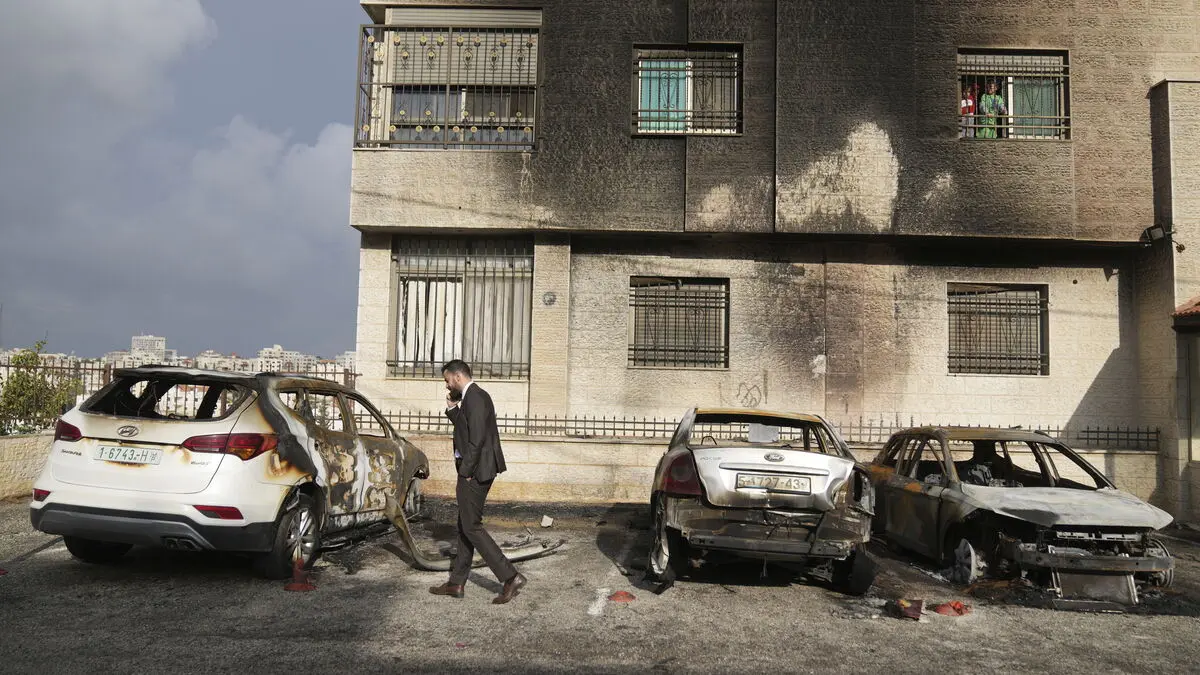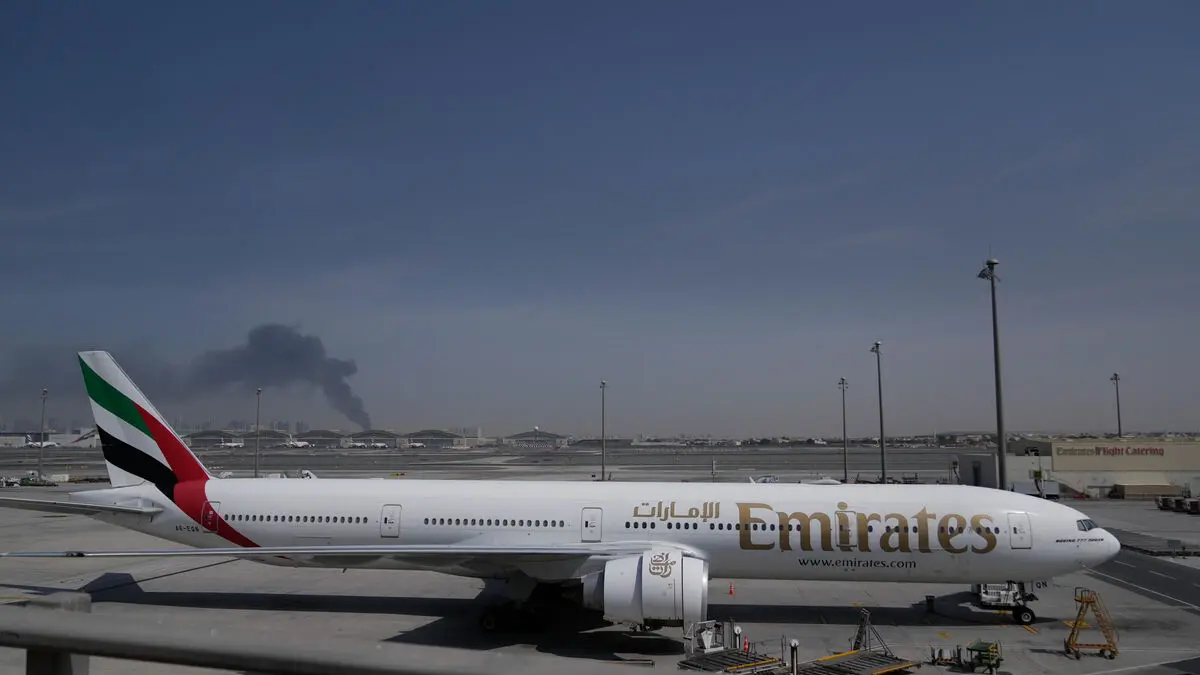It is best that I show, says Ibrahim and turns the phone's camera from the floor where the twins' toys are crowded, up and out through the window.
On a hill, with a clear view of the entire village, Psagot towers - one of the older Israeli settlements on the West Bank. Psagot was formed in 1981 as part of Israel's plan to consolidate its position on occupied land. What Israel calls a village, but large parts of the outside world see as an illegal settlement, became a symbol of the conflict during the second intifada at the beginning of the millennium. After deadly attacks between Israelis and Palestinians, a wall was built around the settlement.
For Ibrahim, the view reminds him of a constantly threatening violence. The Israeli settlements and occupation are in conflict with international law, according to the International Court of Justice in The Hague. But it does not matter.
Record number of new homes
Since the beginning of 2025, the Israeli council that approves new construction on occupied land has gone ahead with plans for over 25,000 homes - a record, according to the Israeli organization Peace Now. The most controversial project is the so-called E1 settlement, a giant construction project that in practice cuts the Palestinian West Bank in two. The Israeli government has explicitly stated that the project aims to stop the possibilities for a Palestinian state.
Ibrahim says that he tries not to normalize the growing settlements, but that it is difficult when he has them in front of his eyes and knows that it can lead to more oppression and violence.
It affects our health. That's why many of us think about moving. You want to be able to drink your coffee in peace and quiet, without being prepared for bullets or fascist settlers, says Ibrahim.
"Impunity" for settler violence
Ibrahim is actually named something else, but has, out of fear of Israeli reprisals, asked to remain anonymous. His fears are there for a reason. The situation for Palestinians on the West Bank has changed dramatically since the Netanyahu government took office in 2022, especially after Hamas' terrorist attacks on Israel in October 2023.
We have seen an increase in settler violence and a general impunity towards it, says Yonathan Mizrachi, at Peace Now, where he examines settlement policy.
The Israeli government is doing far too little, if anything, to prevent the violence, according to Mizrachi. Since January 1, 2024, an average of more than four settler attacks where people or property have been damaged have occurred every day, according to the UN agency Unocha.
Many settlers consider the West Bank to be Israeli territory, or at least land that they have the right to, in conflict with international law. In recent years, a record number of new settler outposts have been built, many of them on or in direct proximity to Palestinians' private land.
According to Ibrahim, the settlers are armed when they move in public.
Palestinians are afraid to go to their land, they risk all sorts of clashes with settlers. It is definitely a threat, says Mizrachi.
Uprooted olive trees
The Palestinians' opportunities are also limited directly by the Israeli state, which has strengthened its grip on the West Bank. Up to 700 Palestinians, including more than 130 children, have been killed by mainly Israeli soldiers, but also settlers, since January 2024. On the Israeli side, the number is 38, including four children and 19 soldiers.
Few Palestinians have been allowed to work in Israel since October 2023. Agricultural land is being destroyed, sometimes by settlers who set fire to it, sometimes by Israeli soldiers who have just this year uprooted thousands of ancient olive trees.
Roadblocks have been set up throughout the Palestinian area and blocked villages and cities, hindering freedom of movement and making it even more difficult for Palestinians to support themselves.
They can just close the streets at any time, says Ibrahim, and tells that it is common to have to spend the night in his car when he has to visit the hospital, or work and go to school.
A journey of just a few kilometers can take several hours, while Israelis can transport themselves relatively freely between the different territories on the West Bank.
There is no logic behind it, just apartheid.
"Makes life very difficult"
The accusation of apartheid, a term borrowed from South Africa's racial segregation policy between 1948 and 1994, is shared by a number of human rights groups, but also by former Mossad chief Tamir Pardo and the now retired Israeli general Amiram Levin. The Israeli government dismisses the description.
Tens of thousands of Palestinians have been displaced, mainly from places like Jenin and Tulkarem, where Israel's military, citing security reasons, has regularly carried out extensive raids in recent years.
New roads, new settlements, a whole system of roadblocks that open and close without warning make life very difficult. It was risky before, but now it's war. We live in a war zone, says Ibrahim.
The Palestinian areas consist of Gaza, the West Bank, and East Jerusalem.
The West Bank, which is located about five miles from Gaza, has been occupied by Israel in conflict with international law since 1967.
This year, the Israeli parliament adopted a non-binding, but symbolically important, motion to go even further and annex the area.
The West Bank is governed by the Palestinian Authority, but Israel controls large parts of the land, borders, and security.
In 2023, around three million Palestinians lived there, and half a million Israeli settlers.
Since the Gaza war broke out in 2023, violence has increased on the West Bank.






